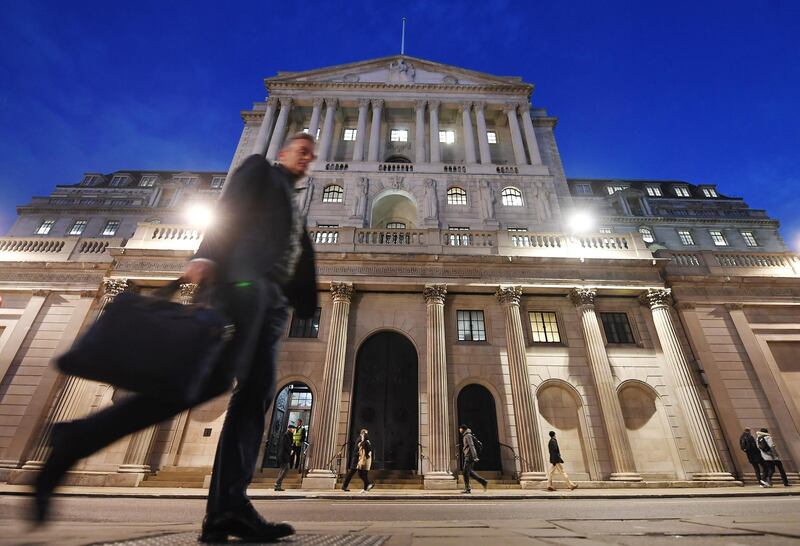Britain’s economic growth will remain “underwhelming” in 2018, a business group has warned, as Brexit uncertainty, high inflation and weak productivity weigh on business activity.
The survey by the British Chambers of Commerce (BCC) of more than 7,000 firms shows that companies continued to grapple with cost pressures at the end of last year and were unwilling to invest more.
Growth in the dominant services sector, which contributes 80 per cent of Britain’s economy, remained subdued, the BCC said. While manufacturers fared better, they still reported slower domestic and export sales.
Taken as a whole, the report suggested the world's sixth largest economy grew modestly in the last three months of 2017, after a small pickup in the three months to September with quarterly growth of 0.4 per cent. However, that remains below the historic trend of close to 0.6 per cent.
“The economy is set to continue on an underwhelming growth trajectory over the near term with uncertainty over the impact of Brexit coupled with high inflation and weak productivity likely to dampen overall economic activity,” said Suren Thiru, the BCC’s head of economics.
_______________
Read more:
[ Fall in UK Christmas spending records worst year since 2012, finds Visa survey ]
[ UK's turbulent year draws to a close with little to cheer ]
_______________
UK businesses are warning that more price hikes lie ahead thanks to rising inflation, the survey showed.
Inflation surged following the Brexit vote in June 2016 as the collapse in sterling pushed up the cost of imports. The UK's Consumer Prices Index inflation rate came in at 3.1 per cent in November, the highest in almost six years.
More than a third of services companies expected to raise prices in the next three months, the highest proportion since 2008, according to the BCC.
Among manufacturers, that figure rose to 50 per cent, reflecting the continued pressure from raw material inputs.
“Inflation remains a concern, with a significant spike in inflation expectations in the quarter,” Ms Thiru said.
“While inflation is likely to peak in the coming months it is likely to remain stubbornly above the Bank of England’s 2 per cent inflation target for a prolonged period.”
Businesses also said skills shortages are reaching "critical levels", with 71 per cent of services firms reporting recruitment difficulties – the most since records began in 1989.
The findings confirm fears that the economy is set to suffer a “brain drain” as new immigration rules after Brexit take effect.
The BCC warned recruitment issues could prove the biggest drag on business in 2018, as it urged its members to train more staff, rather than simply complain about staff shortages.
The Bank of England has said it anticipates an improvement in business investment in 2018.
But the BCC survey showed no sign of a firm upswing in investment plans among either services or manufacturing companies.
Amid this uncertain background, the UK’s chancellor and Brexit secretary flew to Germany on Wednesday to meet business groups to make Britain’s case for a wide-ranging Brexit deal.
Philip Hammond and David Davis – who usually sit at opposite ends of the EU divorce spectrum – put aside their differences to call for an agreement which could be “the most ambitious in the world”, covering both goods and financial services.
In an article for a German newspaper ahead of their visit, they warned that Brussels' insistence on keeping financial services off the table in trade talks threatens a repeat of the 2008 crash.
The EU and the UK are due to begin formally discussing their future trade ties in March.
Mr Davis has recently stated his vision for a "Canada plus plus" trade deal, which would involve a similar model to the Canada-EU trade deal but with an additional agreement on services, including financial.
But the notion set him on a collision course with the EU’s chief negotiator, Michel Barnier, who has repeatedly insisted that a bespoke deal involving financial services is not possible.
"There is no place [for financial services]. There is not a single trade agreement that is open to financial services. It doesn’t exist," Mr Barnier said in December.






